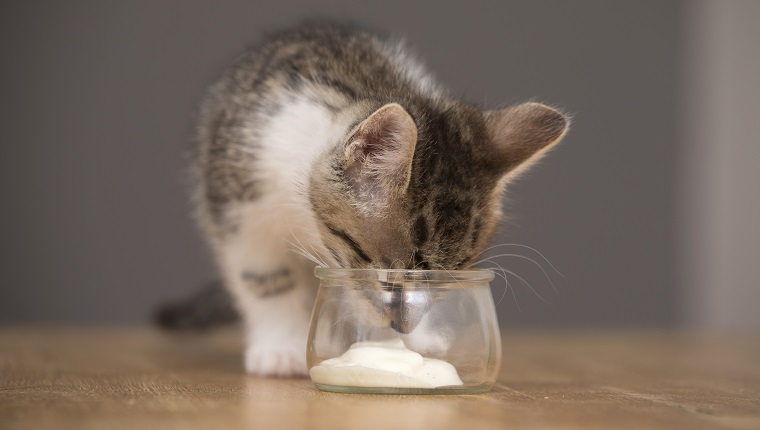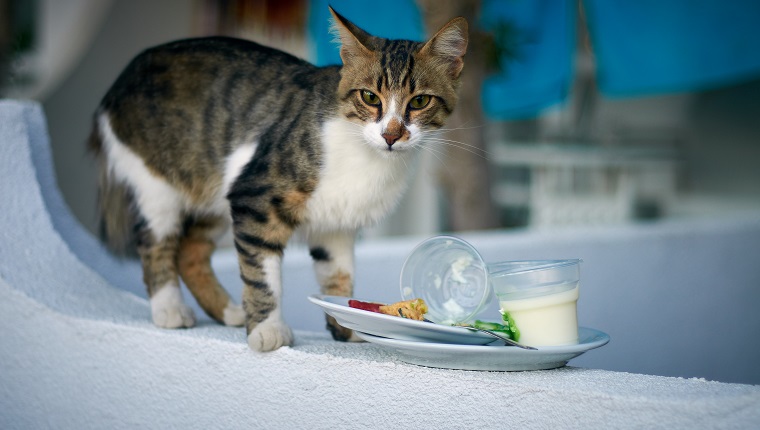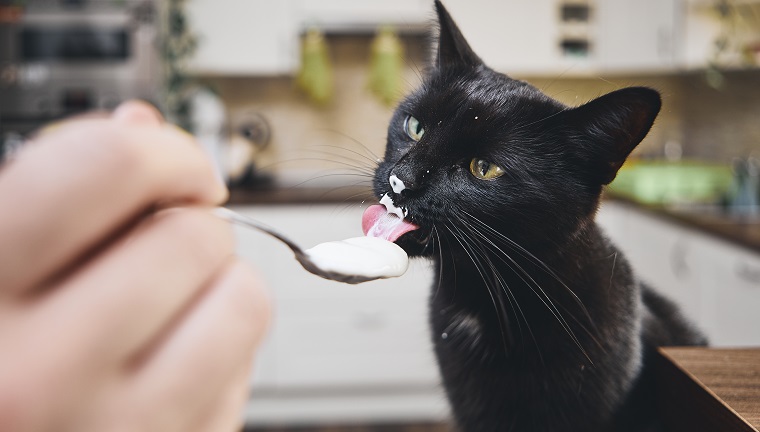“Can cats eat yogurt?” You may be asking this if you want to add something different to your kitty’s diet, or maybe if your cat has helped themselves to your snack while you were looking the other way.
The good news is that most cats do fine with small amounts of plain yogurt. In fact, some may benefit from semi-regular spoonfuls to settle a sensitive stomach or stimulate their appetite.
It’s important, however, to practice moderation and ensure your feline isn’t ingesting any sugars, artificial sweeteners, or syrups. And as always, you must ask your vet before sharing any human food, including yogurt, with your pets.
Here’s what you need to know about giving yogurt to your cat.
When Is Yogurt Okay For Cats?

If your cat has frequent issues with digestion, including regular bouts of diarrhea, you may want to talk to your vet about introducing a few tablespoons of yogurt per week into their diet.
The live cultures in yogurt work with a cat’s natural bacteria to calm their digestive system and soothe their tummies. This can also help stimulate appetite if your kitty has been eating less lately.
Yogurt can also be a helpful tool for kitties who crave milk, but are over twelve weeks old. As cats age, it becomes difficult for their bodies to digest lactose.
Unlike most dairy products, yogurt contains bacteria that aid in digestion of lactose, so cats can have the comforting experience of an occasional milky treat without the upset stomach.
In any case, you should start by giving your cat a very small amount and watch closely for any signs that they may not be tolerating it well.
What Kind Of Yogurt Can Cats Have, And How Much?

Ask your vet before sharing yogurt with your cat.
Your cat’s diet shouldn’t contain more than a few tablespoons of yogurt per week, and it should always be plain. Any style of unflavored yogurt is fine, but Greek yogurt tends to have the highest amounts of healthy bacteria.
Flavored yogurts usually contain sugars or artificial sweeteners, which should always be avoided in your cat’s diet. They also often contain flavorings, additives, and other ingredients that can be harmful to a cat’s health. For example, vanilla-flavored yogurt can contain ethanol, which is toxic to cats.
If you want to make an extra-special treat for your cat, you can add a couple of fresh blueberries or a few pieces of banana to the mix, but most cats will be happy to eat it plain, straight from the spoon.
Do you ever share yogurt with your cat? What other foods help calm your kitty’s sensitive stomach? Tell us in the comments below!




